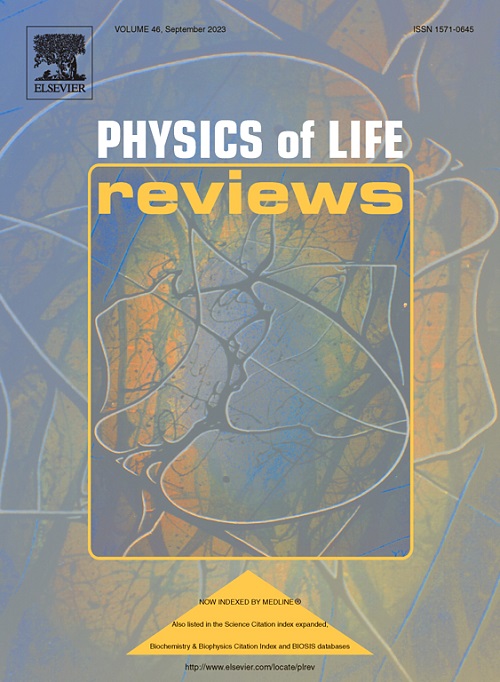自学大脑的悖论。
IF 14.3
1区 生物学
Q1 BIOLOGY
引用次数: 0
摘要
大脑试图研究自己的悖论提出了一个难题,提出了关于自我参照、意识、精神障碍和科学探索边界的问题。这个复杂的器官怎样才能把研究的焦点转向它自己呢?我们的目标是解开这个悖论的错综复杂之处。历史上,哲学家们在不同的框架下提出了这个问题。由于在功能和结构水平上研究大脑的新技术的发展,以及可以在选定区域调节其活动的神经刺激协议,我们现在拥有先进的方法来推进这一复杂的调查。尽管如此,大脑追求理解本身的更广泛含义至今仍不清楚。最终,对知觉和内省的需要导致了意识的不同表述。这就产生了一个挑战,因为支持一种说法的证据不一定支持另一种说法。通过从哲学和神经科学的角度解构自我理解的矛盾本质,我们可能会深入了解人类大脑,从而提高对自我意识和意识的理解。本文章由计算机程序翻译,如有差异,请以英文原文为准。
The paradox of the self-studying brain
The paradox of a brain trying to study itself presents a conundrum, raising questions about self-reference, consciousness, psychiatric disorders, and the boundaries of scientific inquiry. By which means can this complex organ shift the focus of study towards itself? We aim at unpacking the intricacies of this paradox. Historically, this question has been raised by philosophers under different frameworks. Thanks to the development of novel techniques to study the brain on a functional and structural level - as well as neurostimulation protocols that can modulate its activity in selected areas - we now possess advanced methods to progress this intricate inquiry. Nonetheless, the broader implications of the brain's pursuit of understanding itself remain unclear to this day. Ultimately, the need to employ both perception and introspection has led to different formulations of consciousness. This creates a challenge, as evidence supporting one formulation does not necessarily support the other. By deconstructing the paradoxical nature of self understanding - from a philosophical and neuroscientific point of view - we may gain insights into the human brain, which could lead to improved understanding of self-awareness and consciousness.
求助全文
通过发布文献求助,成功后即可免费获取论文全文。
去求助
来源期刊

Physics of Life Reviews
生物-生物物理
CiteScore
20.30
自引率
14.50%
发文量
52
审稿时长
8 days
期刊介绍:
Physics of Life Reviews, published quarterly, is an international journal dedicated to review articles on the physics of living systems, complex phenomena in biological systems, and related fields including artificial life, robotics, mathematical bio-semiotics, and artificial intelligent systems. Serving as a unifying force across disciplines, the journal explores living systems comprehensively—from molecules to populations, genetics to mind, and artificial systems modeling these phenomena. Inviting reviews from actively engaged researchers, the journal seeks broad, critical, and accessible contributions that address recent progress and sometimes controversial accounts in the field.
 求助内容:
求助内容: 应助结果提醒方式:
应助结果提醒方式:


